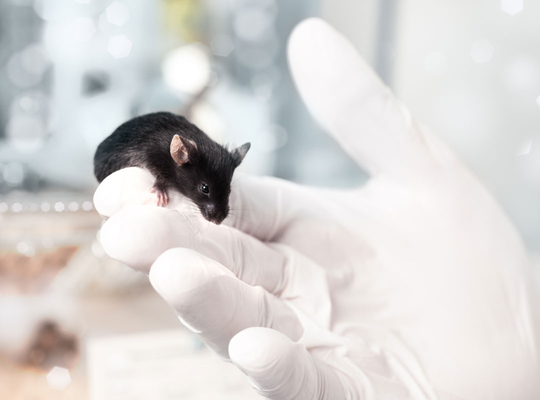You are here
Flanders adopts a pioneering role against animal testing

Flemish Minister for Animal Welfare Ben Weyts wants Flanders to be a pioneer in promoting animal welfare within the EU. With this goal in mind he is going to invest EUR 350,000 in alternatives to research that involves animal testing. For example, among other things there will be a European platform that will consolidate all existing alternative research methods. In future, Ben Weyts also wants to have Flemish companies contribute to new research programmes that further reduce animal suffering. “We must prevent animal testing as much as possible,” the Minister stresses. “For this reason Flanders must be a pioneer in scientific research that spares animals from suffering.”
Flanders is devoting great efforts into developing and promoting alternative methods that render animal testing redundant. “There are already a host of interesting alternatives in existence, such as in-vitro testing and computer modelling,” Ben Weyts explains. “However, researchers are often unaware of the specific alternative possibilities. We are now going to bundle that fragmented expertise together and make it available to all researchers in Europe.” In concrete terms the Minister is releasing EUR 250,000 for the establishment of a European platform for alternative research methods. The European reference laboratory for alternative methods (EURL-ECVAM) and the Netherlands have already said they will sign up to the platform. And in future, even more European countries must be involved in the project.
Eye irritation test
Ben Weyts is also making targeted investments in the development of new alternative methods. For example, 100,000 euros are going towards the development of an alternative to the eye irritation test. This test is mandatory for a great many chemical products, but currently goes hand-in-hand with a significant proportion of animal testing. Every year in the EU, no fewer than 50 million animals are subjected to such a test. The Flemish Institute for Technology Research (VITO) is now investigating alternatives that not only render the eye irritation test redundant, but also reduce the cost price of chemical products.
Co-financing
In future, Ben Weyts wants to have the sectors that use animal testing contribute to new research programmes that further reduce animal suffering. Ben Weyts is holding consultations with the most important players in Flanders in this regard: “I am aiming for co-financing with those sectors, specifically for research projects that mainly impact Flanders. In the past, research only included animal suffering, but now we’re putting all our efforts into research excluding animal suffering.

